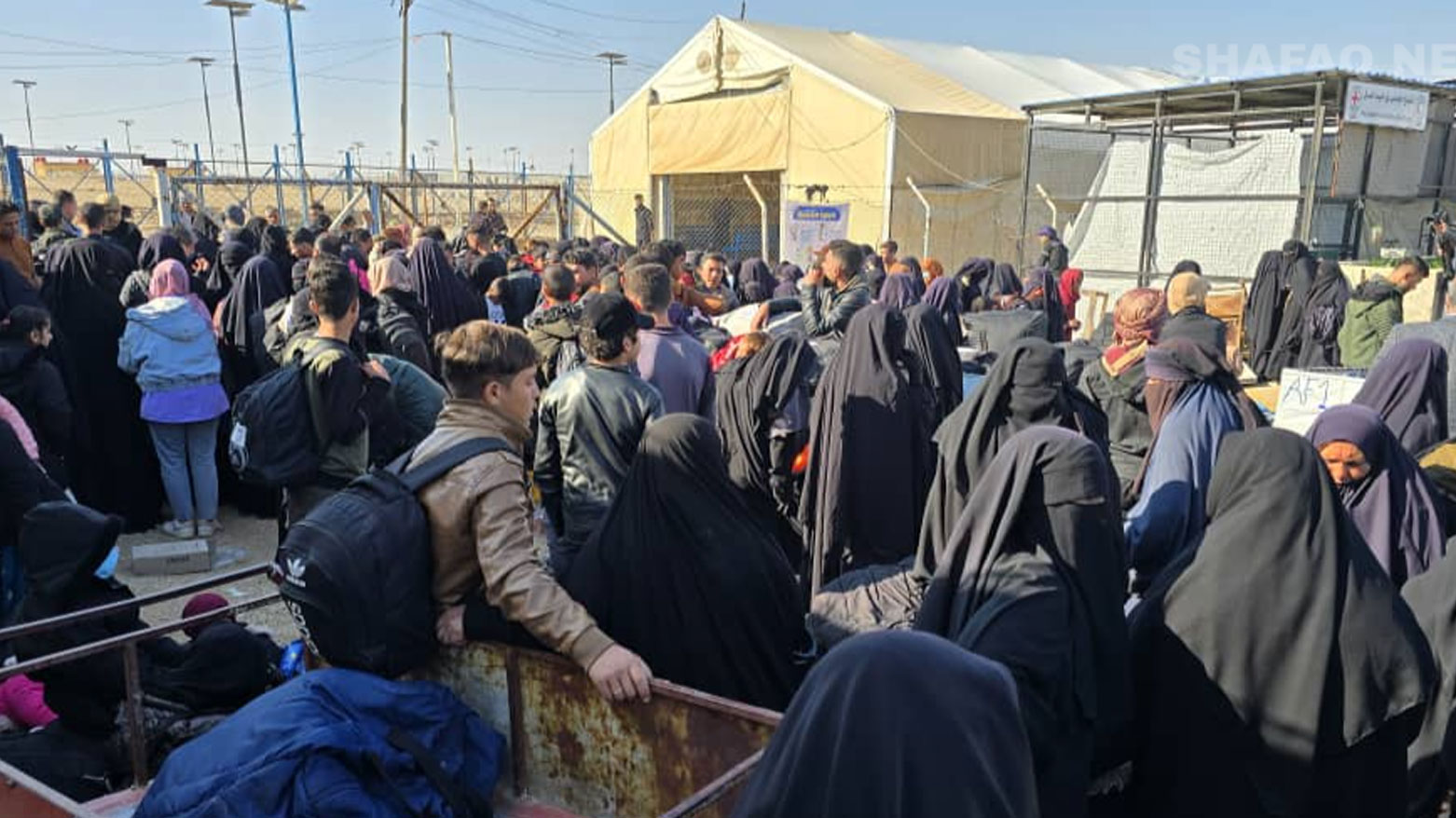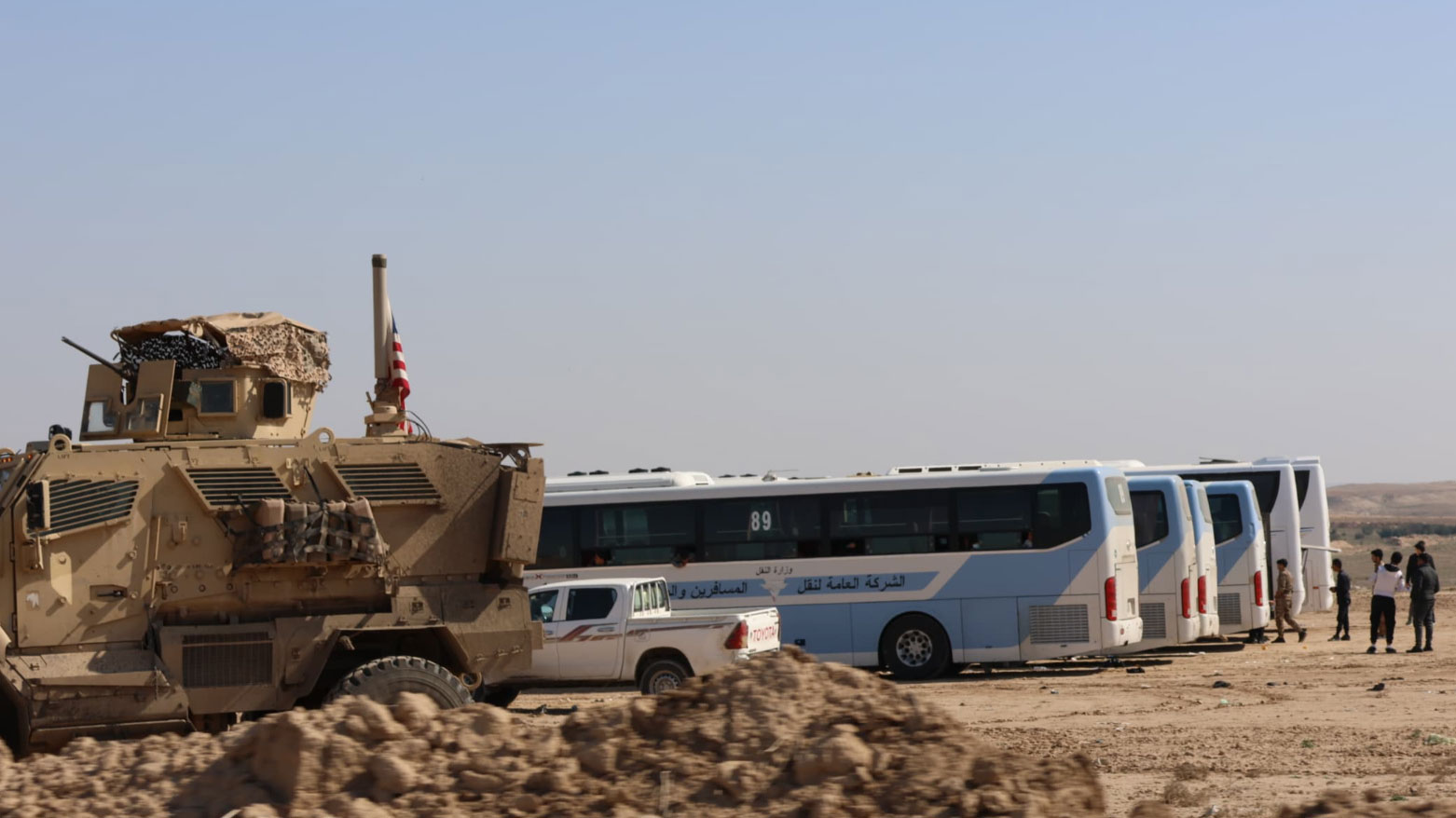ISIS-Linked Families Leave Al-Hol Camp for Iraq
A total of 161 families, consisting of 607 individuals, left the camp after undergoing security and administrative procedures.

ERBIL (Kurdistan24) – The Iraqi government, in coordination with the Syrian Democratic Forces (SDF), has repatriated dozens of Iraqi families from the notorious al-Hol camp in Syria. On Wednesday, a total of 161 families, consisting of 607 individuals, left the camp after undergoing security and administrative procedures.
According to the camp administration, the transfer was conducted with logistical and security oversight. The families were transported via buses provided by the Iraqi government, under the protection of U.S. forces until reaching the Iraqi border.
From there, they were handed over to Iraqi authorities and relocated to Jadaa camp in Nineveh governorate, where they will undergo further screening and reintegration processes.
Al-Hol camp, situated in the south of Hasaka province in Syria, has long been a focal point of international security concerns. The camp, controlled and administered by the SDF, houses thousands of families of ISIS fighters, many of whom were detained following the territorial defeat of ISIS in Syria.
Over the years, the camp’s population has fluctuated, with estimates indicating that it once held as many as 74,000 people. As of September 2019, approximately 20,000 women and 50,000 children affiliated with ISIS fighters were reported to be living in the camp, guarded by around 400 SDF personnel.

The repatriation of Iraqi families is part of ongoing efforts between the Iraqi government and the Autonomous Administration of North and East Syria (AANES) to facilitate the return of Iraqis who wish to leave the camp. Officials have emphasized that this process is crucial to stabilizing the region and addressing long-standing humanitarian and security challenges.
One key component of the agreement between Ahmed al-Sharaa, the interim Syrian President, and Mazloum Abdi, the SDF’s commander, involves the gradual transfer of control over al-Hol camp and the Syrian-Iraqi border back to the Syrian government.
This development has raised concerns among Iraqi authorities, particularly regarding the potential security implications of shifting governance in the region.
Iraq remains on high alert over the possibility of history repeating itself. With the collapse of the Assad regime in Syria and ongoing instability, Iraqi officials fear a resurgence of extremist threats similar to the events of 2014 when ISIS overran vast swathes of Iraqi territory, seizing control of major cities, including Mosul.
The issue of al-Hol camp and its residents has remained a contentious topic in international security discussions. Humanitarian organizations have frequently called for a comprehensive strategy to address the future of the camp’s detainees, many of whom remain stateless and lack legal pathways for repatriation or rehabilitation.
Meanwhile, regional powers continue to debate the best course of action to prevent the camp from becoming a breeding ground for radicalization.
As Iraq continues to process the repatriation of its citizens, the international community will closely monitor the long-term implications of these efforts. The ability of Iraq to reintegrate and monitor these returnees will be crucial in determining whether such measures contribute to long-term security or pose new challenges for the country’s counterterrorism strategy. The fate of al-Hol camp and its remaining inhabitants remains uncertain, but Wednesday’s transfer marks another step in addressing the complex humanitarian and security dilemmas stemming from the legacy of ISIS in the region.
